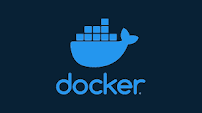Colleagues, the
Linux Software Market 2022 report from Industry Research is projected to reach $13.780B USD by 2028, growing at a CAGR of 15.9%. ZipRecruiter estimates average annual Linux Software Engineer salaries in the US at $111, 783. Our first pick is the Introduction to Linux, Open Source Development, and GIT (LFD301) program - acquire high-demand skills in Open Source Software, Why Use Open Source Software?, Examples of Successful OSS Projects, How to Work in OSS Projects, Continuous Integration, OSS Licensing and Legal Issues, Leadership vs Control and Why Projects Fail, Respecting and Encouraging Diversity in OSS, GitHub and Other Hosting Providers, Linux and the Operating System, Graphical Environments and Interfaces, System Administration, Text Editors, Shells, bash, and the Command Line, Filesystem Layout, Partitions, Paths and Links, System Initialization, Memory, Networking, Command Details, Users and Groups, Linux Filesystems, Essential Command Line Tools, Bash Scripting, Files and Filesystems, Compiling, Linking and Libraries, Java Installation and Environment, Building RPM and Debian Packages, Introduction to GIT, Git Installation, Git and Revision Control Systems, Using Git: - an Example, Git Concepts and Architecture, Managing Files and the Index, Commits, Branches, Diffs, Merges, Managing Local and Remote Repositories, Using Patches, and Advanced Git Interfaces: Gerrit. Next, Linux Kernel Internals and Development (LFD420) - Linux architecture, the basic methods for developing on the kernel, and how to efficiently work with the Linux developer community, Kernel Architecture, Initialization, Configuration and Compilation, System Calls, Style and General Considerations, Race Conditions and Synchronization Methods, SMP and Threads, Processes, Process Limits and Capabilities, Monitoring and Debugging, Scheduling, Memory Addressing, Huge Pages, Memory Allocation, Process Address Space, Disk Caches and Swapping, Device Drivers and Signals. Third, Embedded Linux Development (LFD450) - How to Work in OSS Projects, Embedded and Real-Time Systems Concepts, Cross-Development Environments: Goals and Needs, Kbuild System, Cross-Development Toolchain, QEMU, Booting a Target Development Board from uSD over Ethernet, along with Boot loaders and U-Boot, Kernel Configuration, Compilation, Booting, Device Drivers, Device Trees, Filesystem Packaging, Build Target Root Filesystem, Root Filesystem Choices, Configuring uClibc, Build BusyBox Utility Suite, perform Kernel Monitoring and Debugging, manage Memory Technology Devices (Flash Memory Filesystems), work with Compressed File systems, perform System Upgrades and Real-Time Extensions.Finally, two intermediate-to-advanced level programs. Linux Performance Tuning (LFS426) - industry configuration best practices, the best tried-and-true optimization performance tuning tools and techniques, how to manually optimize the kernel’s behavior, tracing, profiling and instrumentation techniques across a wide range of conditions. It prepares you to use all the tools and techniques you need to keep your Linux systems running at optimal levels. These techniques and tools have been developed and tested in the most demanding high-performance computing environments. Skill-based training modules include: 1) Performance Optimization Principles, 2) Benchmarking, 3) Tuning Interfaces, 4) Monitoring Interfaces, 5) Profiling Techniques and Tools, 6) Tracing Tools, 7) CPU Subsystem, 8) Power Management, 8) Process Scheduling, 9) Memory Subsystem, 10) NUMA Optimizations, 11) I/O Subsystem, 12) Local Filesystems, 13) Network Filesystems, 14) Storage and IO, 15) Analyzing the I/O Subsystem, 16) Network Subsystem Optimization, and 17) Virtualization. Finally, Cloud Foundry Certified Developer (CFCD) (LFD232) - enables developers to demonstrate cloud skills and expertise, and helps developers set themselves apart in a competitive job market. Earn your Cloud Foundry Developer Certification. This program teaches you how to use Cloud Foundry to build, deploy and manage a cloud-native microservices solution. Topics covered directly align with the knowledge domains tested by the Cloud Foundry Certified Developer exam and will substantially increase students’ ability to become certified. Skill-based training modules that will equip you to pass the cert exam include: CF Motivators, Basic Definitions, Technical Overview, Core Themes, Logging and Metrics, Resiliency, Services, Twelve-Factor Applications, Log Drain Review, Manipulating Routes, App Execution and Security Groups, Staging and Running, Microservices, 15) Route Services, Docker, TCP Routing, UAA and OAuth2, Cascading Failure, Distributed Tracing, Application Lifecycle and Non-Breaking Changes.
Enroll in one or more programs today (teams & execs welcome).
Down your complimentary Software Development - Career Transition Guide.
Much career success, Lawrence E. Wilson - Online Learning Central (subscribe & share)















.jpeg)